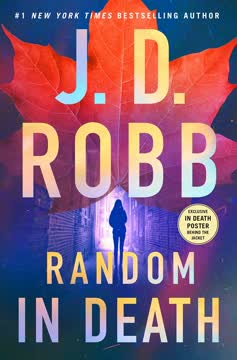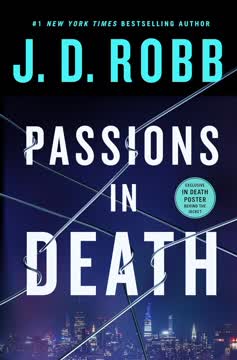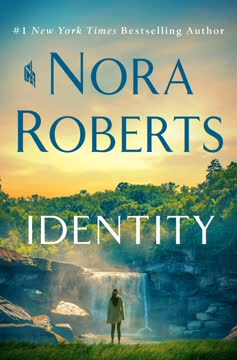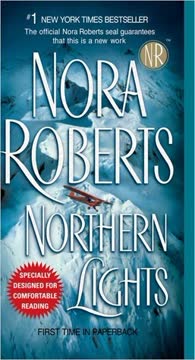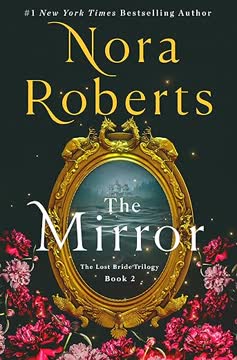Plot Summary
Rebellion Sparks Unforeseen Consequences
Sixteen-year-old Elizabeth Fitch, stifled by her controlling mother, Dr. Susan L. Fitch, decides to break free from her rigid life. She dyes her hair, buys new clothes, and creates a fake ID to experience a night of freedom. This act of rebellion leads her to a nightclub with her friend Julie, where they meet Alex and Ilya, men with ties to the Russian Mafia. The night spirals into chaos when Elizabeth witnesses a double murder, forcing her to flee for her life.
Witness to a Double Murder
After witnessing the brutal murders of Alex and Julie by Yakov Korotkii, a hitman for the Russian Mafia, Elizabeth's life is irrevocably changed. She contacts the police and is placed under federal protection as the sole witness to the crime. Her testimony could dismantle a powerful criminal organization, making her a target. Her life becomes a series of safe houses and constant fear, as she grapples with the trauma of what she witnessed.
Running from the Shadows
Under the protection of U.S. Marshals, Elizabeth struggles with the trauma of the murders and the knowledge that the Russian Mafia is hunting her. Her mother, Susan, refuses to support her decision to testify, leaving Elizabeth isolated. Despite the danger, she is determined to bring justice for Julie and Alex, learning to defend herself both physically and mentally, and forming bonds with her protectors who become her surrogate family.
Secrets and New Beginnings
Twelve years later, Elizabeth has transformed into Abigail Lowery, living a quiet life in the Ozarks. She is a skilled programmer and security expert, using her talents to stay hidden. Her life is solitary, with her only companion being her loyal dog, Bert. Despite her efforts to remain invisible, the past continues to haunt her, especially when she catches the attention of Brooks Gleason, the local police chief, who begins to break down her defenses.
A Dangerous Game of Trust
Abigail and Brooks decide to take a bold step to end her life on the run. They plan to contact the FBI through a trusted intermediary, Captain Anson, to testify against the Russian Mafia. Abigail uses her hacking skills to gather evidence against the corrupt marshals who betrayed her. The couple's bond strengthens as they prepare for the dangerous path ahead, knowing that trust and love are their greatest weapons.
The Past Catches Up
Abigail's past collides with her present as she prepares to testify. She recalls the traumatic events that led to her life in hiding, including the betrayal by U.S. Marshals and the murder of her protectors. Despite the fear of being discovered and the potential danger to Brooks and his family, Abigail is determined to seek justice for those she lost. Her resolve is tested as she navigates the complexities of her new life and the impending confrontation with her past.
Love and Justice Intertwined
As Abigail prepares to testify, her relationship with Brooks deepens. They plan their future together, envisioning a life free from the shadows of her past. Brooks's unwavering support and love give Abigail the courage to face her fears and seek justice. Their bond is tested but ultimately proves unbreakable, as they navigate the complexities of love and justice intertwined.
The Final Confrontation
Abigail takes the stand, recounting the events that led to her life on the run. Her testimony is powerful and compelling, providing the evidence needed to dismantle the Volkov organization. The courtroom drama unfolds as Abigail faces her past and the men who betrayed her. Her courage and determination shine through, as she finally finds the closure she has been seeking for years.
A Future Built on Truth
With the trial behind them, Abigail and Brooks look forward to a future together. Abigail's testimony has brought justice for her friends and protectors, and she can finally live without fear. The couple plans their wedding and dreams of a life filled with love and happiness. Abigail's journey from fear to freedom is complete, as she embraces her new identity and the life she has built with Brooks.
Characters
Elizabeth Fitch/Abigail Lowery
Elizabeth, later known as Abigail, is a brilliant and resourceful woman who has spent years hiding from the Russian Mafia. Her transformation from a controlled teenager to a self-sufficient adult is marked by trauma and resilience. She is fiercely independent, with a deep-seated fear of being discovered, yet yearns for connection and normalcy. Her relationship with Brooks provides the emotional support she needs to face her past and seek justice.
Dr. Susan L. Fitch
Susan is Elizabeth's mother, a successful surgeon who views her daughter as an extension of her own ambitions. Her lack of emotional warmth and rigid expectations drive Elizabeth to rebel, setting off the chain of events that change Elizabeth's life forever. Susan's inability to support Elizabeth during her time of need highlights her cold and detached nature.
Brooks Gleason
Brooks is the chief of police in the small town where Abigail has settled. His easygoing charm and determination to uncover the truth about Abigail's past make him both a threat and a potential ally. As he becomes more involved in Abigail's life, he challenges her to confront her fears and consider a future beyond hiding. His love and support are crucial to Abigail's journey toward freedom and justice.
Yakov Korotkii
Korotkii is a cold and efficient enforcer for the Russian Mafia, responsible for the murders Elizabeth witnessed. His presence looms over her life, representing the constant danger she faces. His loyalty to the Volkovs and his willingness to kill without hesitation make him a formidable adversary.
Ilya Volkov
Ilya is a member of the Russian Mafia, whose initial charm and interest in Elizabeth mask his true nature. His involvement in the criminal organization and connection to the murders make him a key figure in the threat against Elizabeth. His pursuit of power and influence drives much of the danger she faces.
John Barrow
John is one of the U.S. Marshals assigned to protect Elizabeth. His dedication to her safety and his role as a mentor and father figure provide her with a sense of security and support. His tragic death underscores the risks involved in protecting a key witness.
Terry Norton
Terry is another marshal who helps protect Elizabeth. Her no-nonsense attitude and compassion offer Elizabeth a sense of stability and friendship. Terry's death alongside John highlights the high stakes of Elizabeth's situation.
Julie Masters
Julie is Elizabeth's friend and the catalyst for her night of rebellion. Her tragic death at the hands of the Russian Mafia serves as a constant reminder of the danger Elizabeth faces and the need for justice.
Sergei Volkov
Sergei is the head of the Russian Mafia, whose influence and reach pose a significant threat to Elizabeth. His determination to eliminate her as a witness drives the relentless pursuit that defines her life on the run.
Bert
Bert is Abigail's dog, a constant companion and source of comfort. His presence provides her with a sense of security and normalcy in her otherwise isolated life.
Plot Devices
Witness Protection
The concept of witness protection is central to Elizabeth's story, as it dictates her life choices and the constant need for vigilance. It represents both safety and isolation, forcing her to live a life of secrecy and fear.
Identity and Transformation
Elizabeth's transformation into Abigail Lowery is a key plot device, highlighting themes of identity and the lengths one must go to for survival. Her new identity allows her to hide from her past, but also challenges her to reconcile who she was with who she has become.
The Russian Mafia
The Russian Mafia serves as the primary antagonist, with their reach and ruthlessness driving the tension and danger in the story. Their pursuit of Elizabeth underscores the stakes and the need for her to remain hidden.
Trust and Relationships
The development of trust and relationships is a significant plot device, as Abigail navigates her interactions with Brooks and others. Her struggle to trust and connect with others reflects her internal conflict and desire for a normal life.
Technology and Hacking
Abigail's skills in hacking and technology are crucial plot devices, allowing her to gather evidence against the Volkovs and the corrupt marshals. Her ability to navigate the digital world is key to her survival and the success of the plan to dismantle the criminal organization.
Analysis
"The Witness" by Nora Roberts is a compelling narrative about transformation, resilience, and the quest for justice. Through Elizabeth's journey from a controlled teenager to a self-sufficient adult, the story explores themes of identity, trust, and the power of truth. The book highlights the impact of trauma and the strength required to confront one's past. It also delves into the complexities of relationships and the importance of love and support in overcoming fear. Ultimately, the story is a testament to the human spirit's ability to endure and triumph over adversity, offering a message of hope and the possibility of a future built on truth and justice.
Last updated:
FAQ
Synopsis & Basic Details
What is The Witness about?
- Teenage Rebellion Turns Deadly: Sixteen-year-old Elizabeth Fitch, stifled by her emotionally distant and controlling mother, Dr. Susan L. Fitch, rebels by forging an ID and going to a Chicago nightclub with a friend, Julie Masters. This impulsive act leads her to witness a brutal double murder committed by members of the Russian Mafia.
- Life on the Run & New Identity: As the sole witness, Elizabeth is placed under federal protection, but a betrayal within the U.S. Marshals Service leads to the death of her protectors. Forced to flee, she spends the next twelve years living under various assumed identities, constantly on the run and honing her skills as a computer security expert to stay hidden.
- Finding Love and Facing the Past: Now living as Abigail Lowery in a small Arkansas town, she meets police chief Brooks Gleason. Their relationship challenges her need for isolation and safety, ultimately giving her the courage and support needed to confront her past, seek justice for those she lost, and dismantle the powerful criminal organization that has hunted her for over a decade.
Why should I read The Witness?
- Compelling Blend of Thriller and Romance: The novel masterfully combines high-stakes suspense and the constant threat of discovery with a deeply emotional story of healing, trust and relationships, and finding love in unexpected circumstances.
- In-Depth Character Transformation: Witness Elizabeth's evolution from a sheltered, controlled teenager into a fiercely independent, resourceful, and emotionally complex woman who reclaims her life on her own terms.
- Exploration of Complex Themes: The story delves into themes of identity, the lasting impact of trauma, the nature of family (both biological and chosen), the meaning of home, and the pursuit of justice against seemingly insurmountable odds.
What is the background of The Witness?
- Post-Cold War Russian Organized Crime: The novel is set against the backdrop of the rise of Russian organized crime (bratva) following the collapse of the Soviet Union, portraying their expansion into various illicit activities and infiltration of legitimate businesses and even law enforcement.
- Witness Protection Program Realities: The narrative explores the inherent dangers and isolation faced by witnesses in protective custody, highlighting the potential for betrayal and the psychological toll of living a life in hiding.
- Technological Underpinnings: The plot heavily relies on the protagonist's exceptional skills in computer science, hacking, and security design, reflecting the increasing role of technology in both criminal activities and law enforcement in the early 21st century.
What are the most memorable quotes in The Witness?
- "The barb in the arrow of childhood suffering is this: its intense loneliness; its intense ignorance.": This quote, appearing before Chapter 1, sets a poignant tone for Elizabeth's isolated upbringing and the pain stemming from her mother's emotional neglect and rigid control, foreshadowing her desperate need for connection and experience.
- "I'm in love with you. I'm making you a promise right here that you'll hear them from me every day.": Brooks's declaration to Abigail, spoken during a moment of vulnerability and fear, signifies the turning point in her emotional journey, offering unwavering support and a promise of genuine connection she has never known.
- "I want people to know what was done, and I want to make the life they saved worthwhile. I'm finished running.": Elizabeth's powerful statement on the witness stand encapsulates her transformation from a terrified fugitive to a woman determined to honor the sacrifice of her protectors and reclaim her identity by facing her past head-on.
What writing style, narrative choices, and literary techniques does Nora Roberts use?
- Dual Narrative Structure: The novel is divided into distinct parts, first focusing on Elizabeth's traumatic teenage experience and escape, then shifting to Abigail's life twelve years later, creating a strong sense of transformation and the passage of time while building suspense around her hidden past.
- Sensory and Emotional Detail: Roberts employs rich descriptions of settings, particularly the vibrant chaos of the nightclub and the serene beauty of the Ozarks, contrasting Elizabeth's internal turmoil with her external environment and grounding the narrative in vivid sensory experiences.
- Dialogue-Driven Characterization: Characters' personalities, motivations, and relationship dynamics are heavily revealed through sharp, often witty, and emotionally charged dialogue, showcasing Elizabeth's intellectual precision, Brooks's easy charm, and the distinct voices of the supporting cast.
Hidden Details & Subtle Connections
What are some minor details that add significant meaning?
- Elizabeth's Multilingualism: Her fluency in multiple languages, a product of her mother's rigorous schedule ("Elizabeth—never Liz or Lizzie or Beth—spoke fluent Spanish, French, Italian, passable Russian and rudimentary Japanese"), initially highlights her mother's control but later becomes a crucial survival tool, allowing her to understand the killers' conversation and navigate various identities.
- The Specifics of Elizabeth's Rebellion: Details like buying jeans with cash ("so the receipt wouldn't show up on her credit card bill"), crying in the McDonald's bathroom, and meticulously studying hair dye instructions reveal the depth of her repression and the calculated nature of her break for freedom, even in seemingly impulsive acts.
- Abigail's Dog's Name Meanings: Bert's names in different languages ("Ami" in French, "Jouer" in French, "Ami" in Farsi, German commands) subtly underscore Abigail's continued vigilance and preparedness ("Ami" meaning friend, "Jouer" meaning to play, Farsi command for stand down), while also highlighting her deep emotional bond with him as her sole companion and protector.
What are some subtle foreshadowing and callbacks?
- The Bouncer's Scar and Stud: Elizabeth's observation of the bouncer's scar and ear stud ("A scar rode his left cheekbone. A stud glinted in his right earlobe") is a seemingly throwaway detail in the chaotic club scene, but it subtly foreshadows the violent world she is entering and the physical markers of those involved in it.
- Elizabeth's Eidetic Memory: Introduced early as a fact of her intellect ("I remember because I have an eidetic memory"), this ability is crucial to her survival and later her testimony, allowing her to recall precise details of the murders and conversations, a skill that becomes her most powerful weapon against the Mafia.
- The Repeated Phrase "See How It Goes": This phrase, used by Brooks in pivotal moments ("Let's see how things go from there," "I have to see how it goes"), becomes a subtle motif representing his patient, adaptable approach to life and their relationship, directly contrasting with Abigail's need for control and planning, and ultimately guiding her towards embracing uncertainty and trust.
What are some unexpected character connections?
- Abigail's Connection to Brooks's Family: The immediate and warm acceptance by Brooks's mother and sisters, particularly their "checking her out" and inviting her to the barbecue, is unexpected given Abigail's solitary nature and fear of exposure, highlighting the genuine warmth of the Gleason family and their intuitive acceptance of her, despite her guardedness.
- Tybal Crew's Link to Lincoln Blake: The seemingly unrelated subplot involving Tybal Crew's domestic issues and Brooks's intervention unexpectedly connects to the main plot when Lincoln Blake attempts to hire Tybal to murder Brooks, revealing the depth of Blake's vindictiveness and his willingness to exploit others' weaknesses.
- Roland Babbett's PI Work for Blake: The introduction of the private investigator, Roland Babbett, initially seems like a direct threat related to Abigail's past, but the reveal that he was hired by Lincoln Blake connects the Blake subplot back to Abigail and Brooks, demonstrating how their lives are becoming increasingly intertwined and threatened by local, as well as distant, enemies.
Who are the most significant supporting characters?
- John Barrow: More than just a protector, Marshal Barrow becomes a surrogate father figure to Elizabeth, teaching her essential survival skills ("He taught her to aim for body mass, to group her shots, to reload") and offering genuine care ("He laid a hand on her shoulder. 'It'll be all right, Liz.'"), his tragic death serving as a powerful motivation for her quest for justice and a symbol of the ultimate cost of her situation.
- Sunny O'Hara: Brooks's mother represents a stark contrast to Elizabeth's own mother, embodying warmth, acceptance, and unconventional wisdom ("Love finds a way"). Her immediate affection for Abigail and her role in integrating her into the family ("Welcome to the family") are crucial to Abigail's emotional healing and her ability to envision a future beyond isolation.
- Captain Joe Anson: Brooks's former captain serves as the vital, trustworthy intermediary between Abigail and the federal authorities. His willingness to listen, believe, and risk his own career ("You're crossing a lot of lines here") based on Brooks's trust and Abigail's compelling story is the critical turning point that allows the plan to bring down the Volkovs to move forward.
Psychological, Emotional, & Relational Analysis
What are some unspoken motivations of the characters?
- Dr. Susan L. Fitch's Need for Control: Beyond simply wanting her daughter to succeed, Susan's meticulous control and lack of emotional connection seem driven by a deeper, unspoken need to validate her own choices and life ("What's best for me, in your opinion, is for me to do, be, say, think, act, want, become exactly what you decided for me before you inseminated yourself with precisely selected sperm"), viewing Elizabeth as a project or experiment rather than an independent person.
- Abigail's Pursuit of Justice: While explicitly stated as a motivation, Abigail's relentless pursuit of justice for Julie, John, and Terry is also fueled by an unspoken need for atonement and to alleviate the profound guilt she carries for surviving when they didn't, particularly for leaving John to die ("I left her. I just left her there," "I'm not leaving you," "Don't make me a failure. Go. Go now.").
- Brooks's Desire to Protect Abigail: Beyond his duty as a police chief and his love for Abigail, Brooks's fierce protectiveness is subtly motivated by his empathy for her past trauma and his own code of right and wrong ("Protect and serve... Protect comes first"), seeing her vulnerability beneath her carefully constructed defenses and wanting to shield her from further harm.
What psychological complexities do the characters exhibit?
- Elizabeth's Trauma Response: Elizabeth exhibits classic signs of trauma, including shock ("Sweating and shivering at the same time, dizzy, nauseated, rapid pulse"), dissociation ("It was a dream. A nightmare"), and later, nightmares and panic attacks ("I'm having nightmares," "felt feverish, queasy," "anxiety attacks"), showcasing the profound psychological impact of witnessing violence and betrayal at a young age.
- Abigail's Struggle with Trust and Intimacy: Years of running and betrayal have instilled in Abigail a deep-seated fear of trusting others and a preference for solitude and control ("I just want to be left alone. I know how to be alone"). Her logical, almost clinical approach to relationships and sex ("Sex is a natural and necessary act," "Marriage as an institution is part of our culture's fabric") is a defense mechanism against emotional vulnerability, which Brooks gradually helps her dismantle.
- Brooks's Empathy and Moral Code: Brooks is portrayed as an emotionally intelligent character who can see beyond surface appearances ("She's worn out, still a little glazed over. But the kid's solid," "She looked nearly as sick about her mother coming in as she did about the rest of it"). His willingness to bend rules for the greater good (baiting Tybal, using Abigail's cameras) is rooted in a strong moral code and a desire for genuine justice, even when it conflicts with strict legal procedures.
What are the major emotional turning points?
- Elizabeth's Act of Rebellion: Cutting and dyeing her hair and buying new clothes marks Elizabeth's first significant emotional break from her mother's control, a moment of exhilarating self-expression that, despite its tragic consequences, sets her on a path toward self-discovery ("She looked … new, Elizabeth decided," "Hi. I'm Liz.").
- The Marshals' Betrayal and John's Death: The murder of John and Terry is a devastating emotional turning point, shattering Elizabeth's fragile sense of safety and trust in authority figures and forcing her into a life of solitary vigilance, while John's dying words become a powerful, albeit painful, directive that shapes her future ("He spent his last moments doing everything he could to keep me safe. So I ran.").
- Abigail's Decision to Trust Brooks: Abigail's gradual decision to trust Brooks, culminating in her telling him her full story, is the most significant emotional turning point in her adult life. It represents her willingness to risk exposure and vulnerability for the possibility of love and connection, moving her from a life of mere survival to one where genuine happiness is possible ("I'm in love with you. Oh, God. It feels real.").
How do relationship dynamics evolve?
- Elizabeth and Susan Fitch: Their relationship is defined by Susan's absolute control and Elizabeth's suppressed resentment. The final confrontation before Elizabeth's rebellion highlights the complete lack of emotional connection ("Listening's different than hearing," "It's not a discussion, it's a decree"), culminating in Susan's abandonment of her daughter and a permanent estrangement.
- Elizabeth and the Marshals (John & Terry): Initially professional protectors, John and Terry develop a familial bond with Elizabeth, offering kindness, support, and a sense of normalcy ("John and Terry—I know it was a job, but they were family to me"). This relationship evolves into one of mutual care and trust, making their deaths a profound personal loss for Elizabeth.
- Abigail and Brooks Gleason: Their relationship evolves from Brooks's initial curiosity about the mysterious newcomer and Abigail's guarded resistance to a deep, trusting love. Brooks's patience, humor, and unwavering acceptance gradually break down Abigail's defenses, leading to shared vulnerability, mutual support, and a commitment to face her past together ("You're not alone anymore. You're not going to be alone anymore.").
Interpretation & Debate
Which parts of the story remain ambiguous or open-ended?
- The Full Extent of Volkov Infiltration: While the novel exposes corrupt Marshals and an FBI agent, the story leaves open the question of how deeply the Volkov organization has infiltrated other areas of law enforcement and the judiciary, suggesting a wider network of corruption that may extend beyond the characters directly involved.
- The Long-Term Safety of Abigail/Elizabeth: Despite the elaborate plan for her fake death and the dismantling of the Volkov network, the inherent ruthlessness and reach of organized crime leave a subtle ambiguity about whether Abigail can ever be truly free from the threat of retribution, or if she will always need to remain vigilant.
- The Future of Lincoln Blake: While Lincoln Blake faces charges for soliciting murder, the novel leaves his ultimate fate somewhat open-ended. Given his wealth and influence, there's a lingering question of whether he will face significant consequences or if his power will allow him to mitigate the legal repercussions.
What are some debatable, controversial scenes or moments in The Witness?
- Brooks's Entrapment of Tybal Crew: Brooks deliberately provokes Tybal Crew into assaulting him to ensure Tybal faces serious charges that mandate rehabilitation ("You baited him into the assault"). This scene is debatable as it involves a police officer intentionally inciting violence, raising questions about the ethics of using manipulative tactics, even for a seemingly positive outcome.
- Abigail's Blackmail of William Cosgrove: Abigail's decision to blackmail Marshal Cosgrove using evidence of his past corruption ("This data will be e-mailed... unless you agree to a payment") is a controversial act. While justified by her need for leverage and justice, it involves illegal extortion, prompting debate about whether the ends (exposing corruption, securing her safety) justify the means (committing a crime).
- The Staged Death of Elizabeth Fitch: The elaborate plan to fake Elizabeth's death, involving deception of federal authorities and a staged shooting, is highly controversial. It raises ethical questions about lying to law enforcement, manipulating a crime scene (even with blanks and fake blood), and the potential legal ramifications if the full truth were ever revealed to those not in the inner circle.
The Witness Ending Explained: How It Ends & What It Means
- The Plan for Justice and Freedom: The ending revolves around Abigail's meticulously planned strategy to achieve justice for Julie, John, and Terry, expose corruption within law enforcement, dismantle the Volkov organization, and finally secure her own freedom and identity as Abigail Lowery. This involves contacting the FBI through a trusted intermediary (Captain Anson), testifying as Elizabeth Fitch, and simultaneously using her hacking skills to cripple the Volkovs financially and expose corrupt officials like Cosgrove and Keegan.
- The Staged Death of Elizabeth Fitch Explained: The pivotal moment is the staged shooting of Elizabeth Fitch after her testimony. Brooks uses a gun loaded with a blank, and Abigail wears a vest with blood packets. Agent Pickto, the Volkov mole, is positioned to witness the "assassination," ensuring the Volkovs believe Elizabeth is dead and cease their hunt. This allows Abigail to disappear permanently, leaving Elizabeth Fitch behind.
- Meaning: Reclaiming Identity and Building a Future: The ending signifies Abigail's triumph over trauma and fear. By confronting her past as Elizabeth and ensuring justice, she reclaims her agency and validates the sacrifices made for her. Her survival and ability to build a life with Brooks, free from the constant threat, represent the possibility of healing and finding home and love after profound loss and isolation. The final scene on the bench overlooking the hills symbolizes her putting down roots and embracing a future built on truth and connection, rather than fear and hiding.
Review Summary
The Witness is a romantic suspense novel that received mostly positive reviews. Readers praised the unique, intelligent heroine and her character development, as well as the small-town setting and engaging plot. Many enjoyed the balance between romance and suspense, though some felt the ending was rushed. The book's length and pacing were points of contention for some readers. Overall, reviewers found it an entertaining read with well-developed characters, particularly appreciating the heroine's journey of personal growth and learning to trust.
Similar Books
Download PDF
Download EPUB
.epub digital book format is ideal for reading ebooks on phones, tablets, and e-readers.

